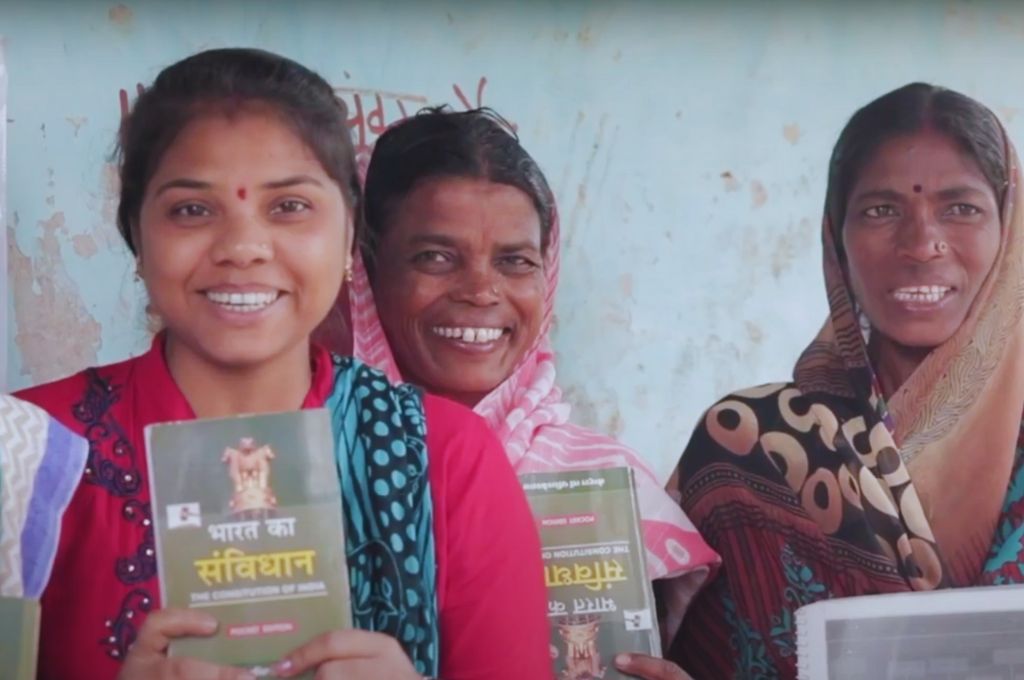The COVID-19 pandemic highlighted the important role played by civil society in dealing with the humanitarian crisis that brewed following the lockdown. From mobilising communities to delivering rations, medicines, and Personal Protective Equipment (PPE) to manning helplines, civil society stepped up when public institutions were crumbling under pressure.
Recognising the value of civil society organisations (CSOs), CEO of NITI Aayog, Amitabh Kant, appealed to the sector to help the government provide essential services to vulnerable populations.
Despite this recognition, there is an underlying fear that once the crisis is over, the stringent regulations that bind the social sector will stay, and the space for civil society will continue to shrink. Funds will be scarce and nonprofits will have to focus all their energies on survival.
Therefore, we need to reposition the sector over the long term and change the power dynamics that exist between the three pillars of society—government, business, and civil society.
And speaking to this at charcha 2020 were three leading figures from the social sector: Arun Maira, Chairperson of HelpAge International and former member of the planning commission, Vijay Mahajan, CEO of Rajiv Gandhi Foundation, and founder of PRADAN and Basix, and Vidya Shah, CEO of EdelGive Foundation.
What steps can we take to strengthen civil society?
Vijay Mahajan spoke about reinforcing the influence of civil society at three levels—ideas, resources, and alliances that are backed by action.
The basic capital of any society is ‘social capital’ and it is important for citizens and civil society to have constitutional legitimacy.
At the level of ideas, Mahajan argued that the basic capital of any society is ‘social capital’ and stressed on the importance of citizens and civil society organisations having constitutional legitimacy in securing the idea of India. “Sharad Pawar managed to enshrine a role for cooperatives in the Constitution. Similarly, we need to enshrine a role for civil society institutions in the Constitution so that we can have a legitimate place.”
He asked the sector to look beyond the world of grants when thinking of financial resources. “We should explore a range of options: User fees, income generated from our activities, or learning to work with loans and social investments. We have to develop a new attitude towards financial resources”, said Mahajan.
The idea of diversifying financial resources holds significance against the backdrop of the nonprofit sector struggling for funds following a clampdown on foreign funding by successive governments at the Centre since 2010, and more recently, a drying up of corporate social responsibility (CSR) and philanthropic funds due to their sizeable contributions to the PM Cares Fund, which was set up by the Centre to deal with the COVID-19-induced crisis.
Adding to this, Arun Maira emphasised that civil society organisations need to be good at three things: Organising large numbers of people without becoming their bosses, not using the same instruments of power that the powerful use to compete, and always staying focused on serving people.

It is important to reinforce the influence of civil society at three levels—ideas, resources, and alliances. | Picture courtesy: Pixabay
On infrastructural resources, Mahajan demanded a legitimate physical space in every Indian city, reserved for members of civil society including a civil society maidaan (field), sarai (low-cost accommodation) and a haat (market). “It should be acres of land in central spaces, not just some small piece handed to the civil society outside the city. It is tragic that even in a city like Delhi or Mumbai, there is no place left for civil society organisations to meet.”
On alliances, Mahajan underlined the need for civil society to forge alliances with media, higher-education institutions, and state entities including the executive, judiciary, and the legislature, and hold them “accountable for what they are delivering”.
Further, urging civil society to take self-correcting measures, Maira said, “we have to learn to collaborate amongst ourselves, to listen to each other much more effectively, and to listen to human beings who don’t have power.”
How can civil society redefine itself?
While strengthening the position of civil society is important in an increasingly unfavourable environment, it is also pertinent to define the role of what is often called the ‘third sector’ in a country with shrinking space for dissent and soaring income inequality.
The World Bank defines civil society as “the wide array of non-governmental and not-for-profit organisations that have a presence in public life, express the interests and values of their members and others, based on ethical, cultural, political, scientific, religious, or philanthropic considerations”.
The primary role of civil society institutions is to be truth-tellers and suggesters to the government.
“Civil society organisations must not solely be seen as nonprofits but as people’s movements, religious bodies, self-help groups, federations, trade unions, and cooperatives”, said Mahajan.“The primary role of civil society institutions is to be truth-tellers and suggesters to the government about ways to improve things while describing the problems on the ground,” he added.
Maira framed the purpose of civil society as one that “enables people without power to eat at the same table as the wealthy and powerful. Civil society facilitates the participation of the powerless people as equals in decisions that affect their lives.”
He also pointed out that civil society could help create a more “just and equitable society” by focussing on restoring and improving the country’s labour laws which were diluted extensively during the lockdown to ‘restart the economy’.
Vidya Shah, who has straddled both the corporate world and civil society cautioned that the lack of a collective voice may result in the sector “regressing over this crisis”. Other industries, in comparison, have associations—such as National Association of Software and Service Companies (NASSCOM) in the IT sector or Federation of Indian Chambers of Commerce and Industry (FICCI), an association of business organisations—that represent their interests and give them collective bargaining power.
Echoing Shah’s argument, Mahajan blamed the ‘inner failings’ of civil society over the past few decades for not having a unified voice. “We did not renew our stock of ideas, practices, or resources. While we want a revival of normalcy, it should not be the old normal of business as usual without attention to workers rights, social security, urban congestion, environmental degradation, and corruption of the state.”
Shah also highlighted that the “worry today is that companies now believe that they have to fight for their survival, and they don’t have time for anything else.” This, in turn, would affect how much support they provide to their nonprofits partners. “We have to figure out how to have a ‘healthy tension’ between the three pillars of society, instead of the conflict that exists between them today”, she said.
—
Know more:
- Read this paper by Oxfam India on civil society, political participation, and the power of movements.
- Read this article that argues why India’s Constitution needs to recognise civil society.
- Understand why India’s recovery depends on the state of its social sector.
Do more:
- There is a collaborative effort underway to reposition civil society and strengthen its influence with business and governments. If you would like to get involved, reach out to [email protected].




